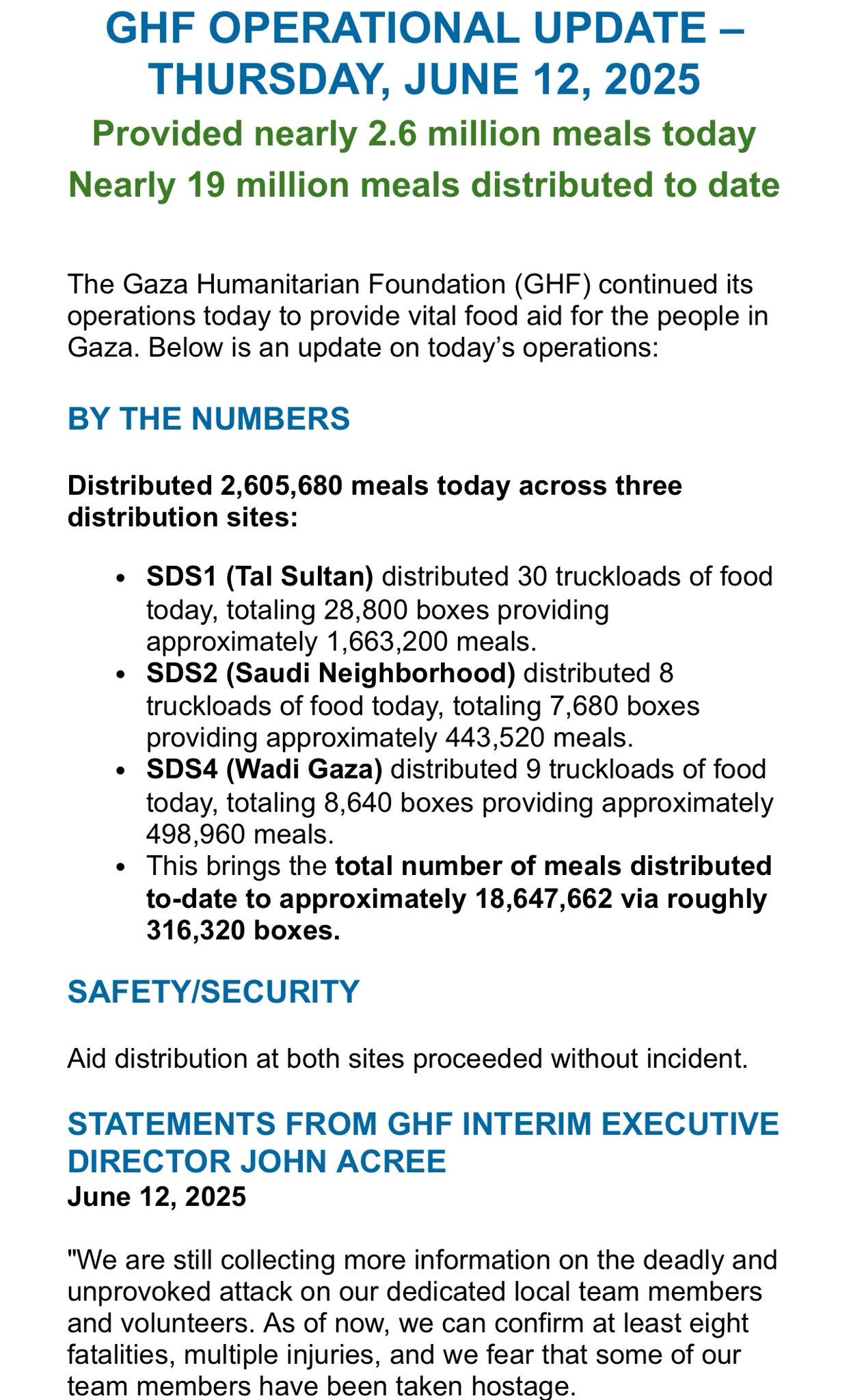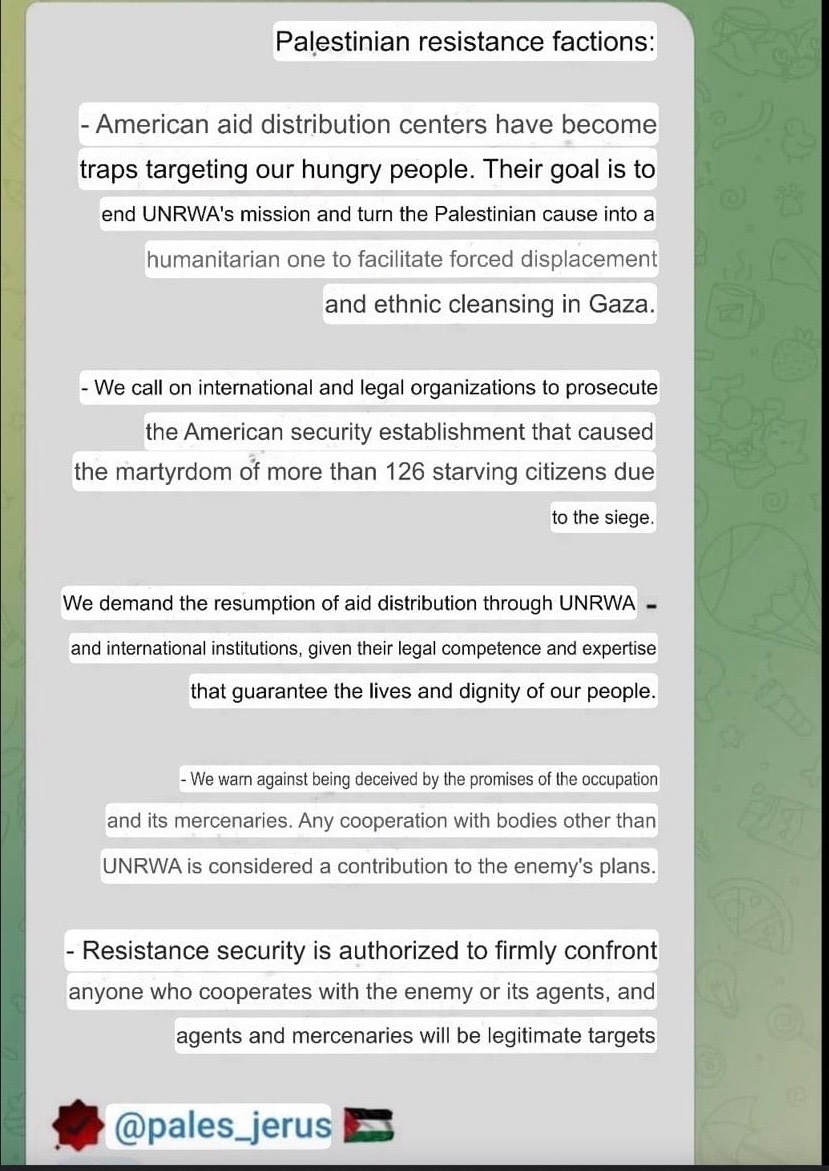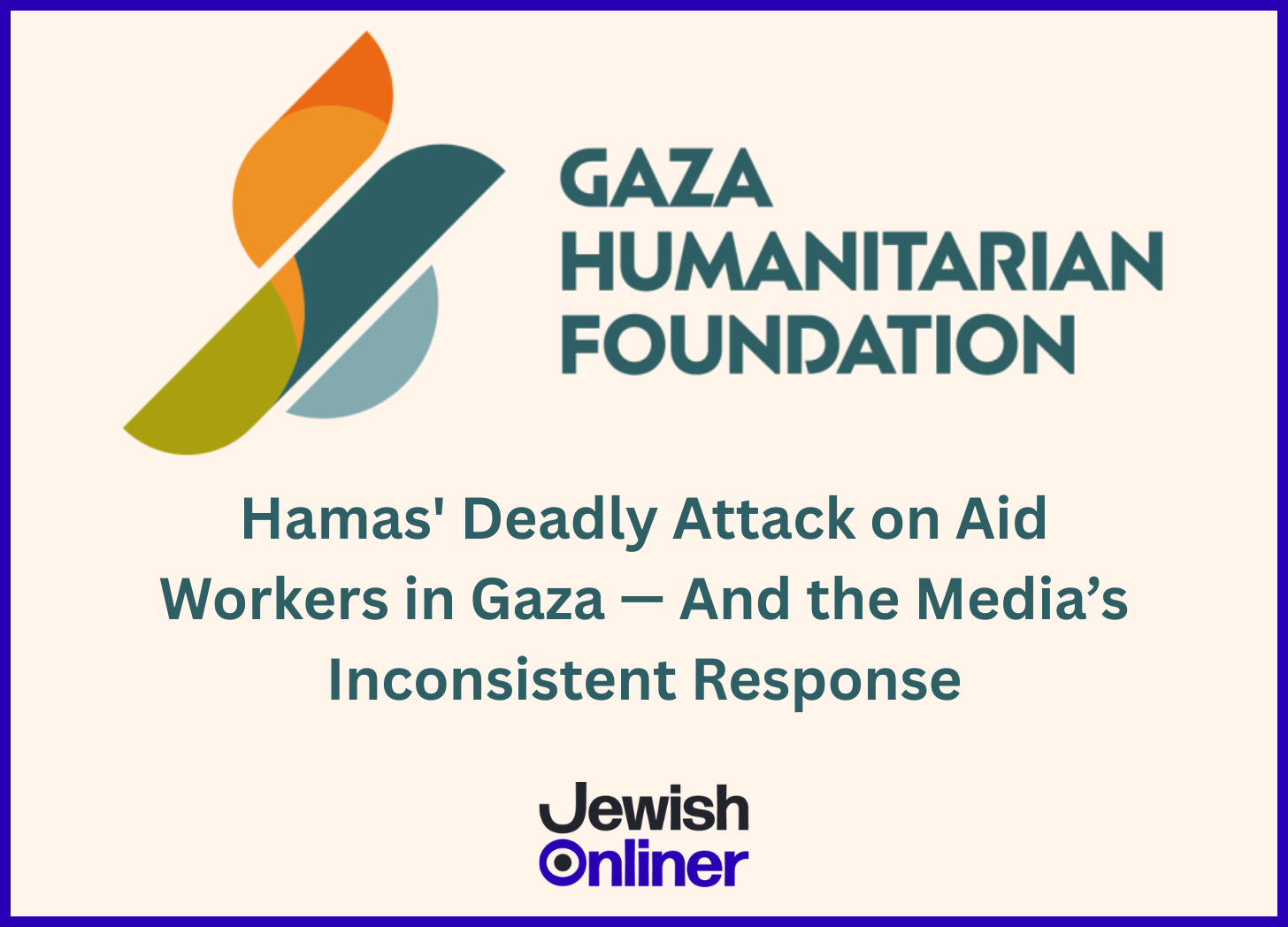Hamas' Deadly Attack on Aid Workers in Gaza — And the Media’s Inconsistent Response
Hamas terrorists attacked a bus carrying GHF staff, killing eight and injuring others—media swiftly cast doubt on GHF's account, a level of skepticism rarely applied to Hamas
On June 11, 2025, the Gaza Humanitarian Foundation (GHF), a U.S.-backed humanitarian organization, reported a deadly attack on one of its buses in Gaza. The bus, carrying over two dozen GHF workers, was ambushed by Hamas militants around 10 p.m. local time while en route to a distribution center west of Khan Younis. At least eight aid workers were killed, and several others were injured, with fears that some workers may have been taken hostage.

This tragic incident highlights not only the ever-growing danger for aid workers in Gaza from the threat of Hamas, but also the disturbing trend in media coverage. Some outlets have been quick to take the word of Hamas—an internationally designated terror organization—over that of a U.S. humanitarian group working to help the people of Gaza.
Inconsistent Media Coverage of Hamas' Violence Against Aid Workers
In the context of the GHF attack, the media coverage surrounding these incidents has been strikingly inconsistent. Leslie Kajomovitz’s recent thread on X highlights how the BBC, along with other news outlets, tends to give Hamas the benefit of the doubt while framing the Gaza Humanitarian Foundation (GHF) as a “controversial” organization. For example, in two BBC reports published just hours apart, sources from Hamas were treated as authoritative, while the BBC said GHF’s statement about the attack could not be independently verified.
This pattern of coverage reflects a clear double standard, where the media is quick to cast doubt on the credibility of a U.S.-backed humanitarian organization, despite video evidence supporting their claims, while not applying the same skepticism to Hamas’s statements, an internationally designated terror group.
This bias is further evident when reviewing coverage from outlets like Sky News and CNN. Just a day earlier, Sky News reported "Palestinians killed by Israeli gunfire," vaguely attributing it to "officials". Yet, the following day, when the GHF accused Hamas of killing at least five of its workers, the organization was quickly labeled “controversial,” and their claims were treated with skepticism.
Similarly, CNN hesitated to accept the GHF's claims, waiting for Hamas to "confirm" the details. This inconsistency highlights the media's role in shaping perceptions of the conflict, giving Hamas a pass while casting doubt on legitimate humanitarian efforts in Gaza.
Hamas' Use of Telegram to Plan Attacks Against Aid Workers in Gaza
A report in the Free Beacon by Adam Kredo elucidated how, in recent weeks, Hamas has escalated its campaign against organizations it perceives as enemies, using platforms like Telegram to openly plan attacks on American aid distribution centers. These messages from Hamas have made it clear that any group or individual collaborating with the U.S. or Israel is considered a legitimate target. This threat has been particularly aimed at organizations like the GHF, which operates in Gaza to provide humanitarian aid. The use of Telegram to organize and communicate these attacks highlights the very real dangers faced by aid workers, especially those affiliated with Western governments.

Hamas' Obstruction of Humanitarian Aid
In addition to its use of Telegram to target aid organizations, Hamas has actively sought to obstruct the distribution of humanitarian aid to Gaza residents. A Gazan resident testified to an IDF officer about how Hamas militants were preventing aid from reaching civilians. According to the eyewitness, "The people who fired were Hamas terrorists. They don’t want the people to receive aid; they want to foil the plan so that the aid will go to them, allowing them to steal it. They've gone completely bankrupt." This testimony highlights Hamas’s direct interference in the flow of aid, which is meant to alleviate the suffering of civilians.
Hamas’s leadership has also made it clear that they are actively working to block aid distribution. Osama Hamdan, a senior political leader of Hamas based in Lebanon, publicly declared: “We expect our great people to thwart the method of receiving aid today, just as they thwarted it yesterday. We trust that our people will endure hunger and not extend their hands to the occupier asking for aid.” This statement reveals the Hamas’ strategy of using the dire humanitarian situation to maintain control and prevent aid from reaching those who need it most, further deepening the crisis in Gaza.
Hamas's deliberate obstruction of humanitarian aid and targeting of aid workers highlights the immense challenges faced by those attempting to provide assistance. Despite the risks, organizations like the Gaza Humanitarian Foundation continue to deliver aid, yet their efforts are continuously thwarted by both militant groups and biased media coverage. The media's inconsistent response is a glaring obstacle to achieving a clear and accurate understanding of the crisis in Gaza.



